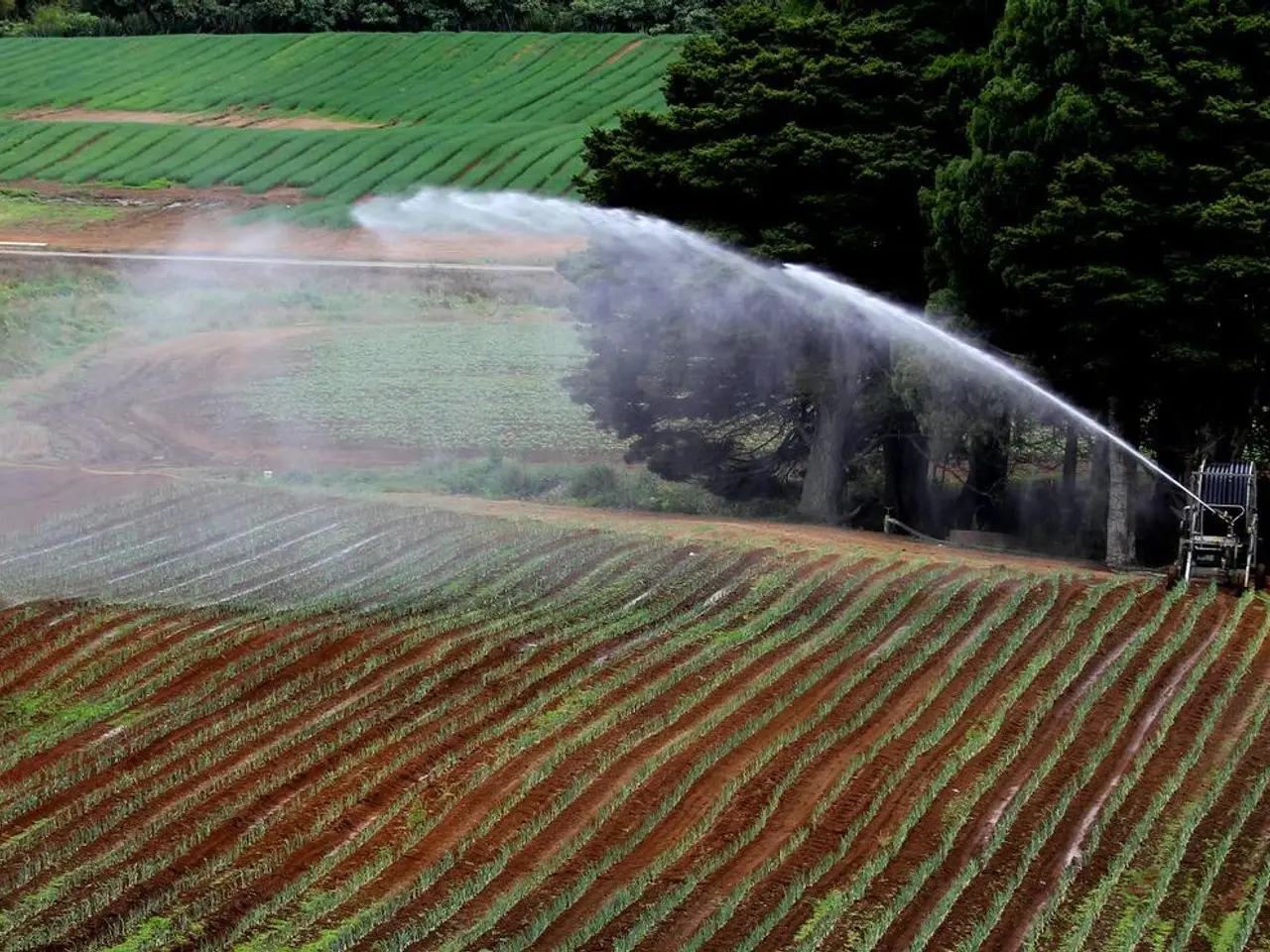Modern Agriculture's Transformational Impact: The Role of Equipment Upgrades in Reshaping Food Production
Modern agricultural technologies are revolutionizing the farming industry, bringing about significant changes in economic growth, sustainability, and community development.
Economic Growth
A key benefit of modern farming techniques is increased productivity. Precision agriculture and genetically modified crops have boosted crop yields, leading to improved farm profitability. Precision agriculture can increase yields by up to 25% globally, while genetically modified crops have enhanced yield stability and reduced input costs [1][3].
Efficient resource use is another advantage of modern technologies. Technologies like satellite monitoring and AI analytics optimize resource allocation, reducing waste and improving planning. This efficiency leads to smarter investments and better decision-making in agriculture [5].
Moreover, the adoption of modern technologies can improve market competitiveness and access, enhancing the economic viability of farmers, particularly smallholder farmers [3].
Sustainability
Modern farming practices prioritize soil conservation through methods like no-till farming, cover cropping, and crop rotation. These practices help maintain soil health and reduce erosion, supporting long-term productivity while preserving environmental resources [1].
Advances in carbon accounting and targeted irrigation systems, often powered by satellite insights, help reduce water usage and carbon emissions. This contributes to climate-smart agriculture and environmental sustainability [1][5].
Modern farming also aims to reduce reliance on chemical inputs through AI-driven optimization of pesticides and fertilizers, supporting biodiversity and ecosystem resilience [1].
Community Development
Modern technologies provide access to financial tools and mobile platforms, empowering women and youth in rural areas. Although automation can reduce labor demand, it also creates new opportunities for skill development [1].
The increased productivity from modern agricultural technologies helps reduce hunger and improve food availability, especially in regions vulnerable to food insecurity [1][3].
Interventions leveraging internet use for sustainable agriculture can enhance the welfare of farming communities by promoting energy efficiency and effective use of resources [2].
A Vibrant Future for Modern Agriculture
The movement towards sustainable practices in agriculture, such as the use of solar-powered machinery, fosters a vibrant community dialogue about our future as caretakers of the land. An example of this is the use of automated irrigation systems, which conserve water and lower energy costs, leading to healthier profit margins.
The journey of modern agriculture is just beginning, with the potential to yield benefits for future generations. Farmers are preparing for a future where decisions in the field are guided by data-driven insights.
The transforming landscape of agriculture expands our understanding of what's achievable. Modern technology in agriculture fosters strong connections between farmers, suppliers, and consumers, creating a united front in the pursuit of resilient, sustainable, and beneficial practices for all.
- The integration of data-driven insights through AI can lead to smarter agriculture decisions, revolutionizing the farming industry.
- The development of smart glass technology can provide farmers with real-time data and visual insights, enhancing precision agriculture.
- Automation in agriculture, driven by technology, can reduce labor demands while creating new opportunities for skill development, particularly among women and youth in rural areas.
- Innovations in agricultural systems, such as solar-powered machinery, not only conserve resources but also foster community dialogue about sustainable practices and our role as caretakers of the land.
- Technology advancements in agriculture, including targeted irrigation systems and optimized pesticide and fertilizer use, can support biodiversity and ecosystem resilience, contributing to a more sustainable future.




